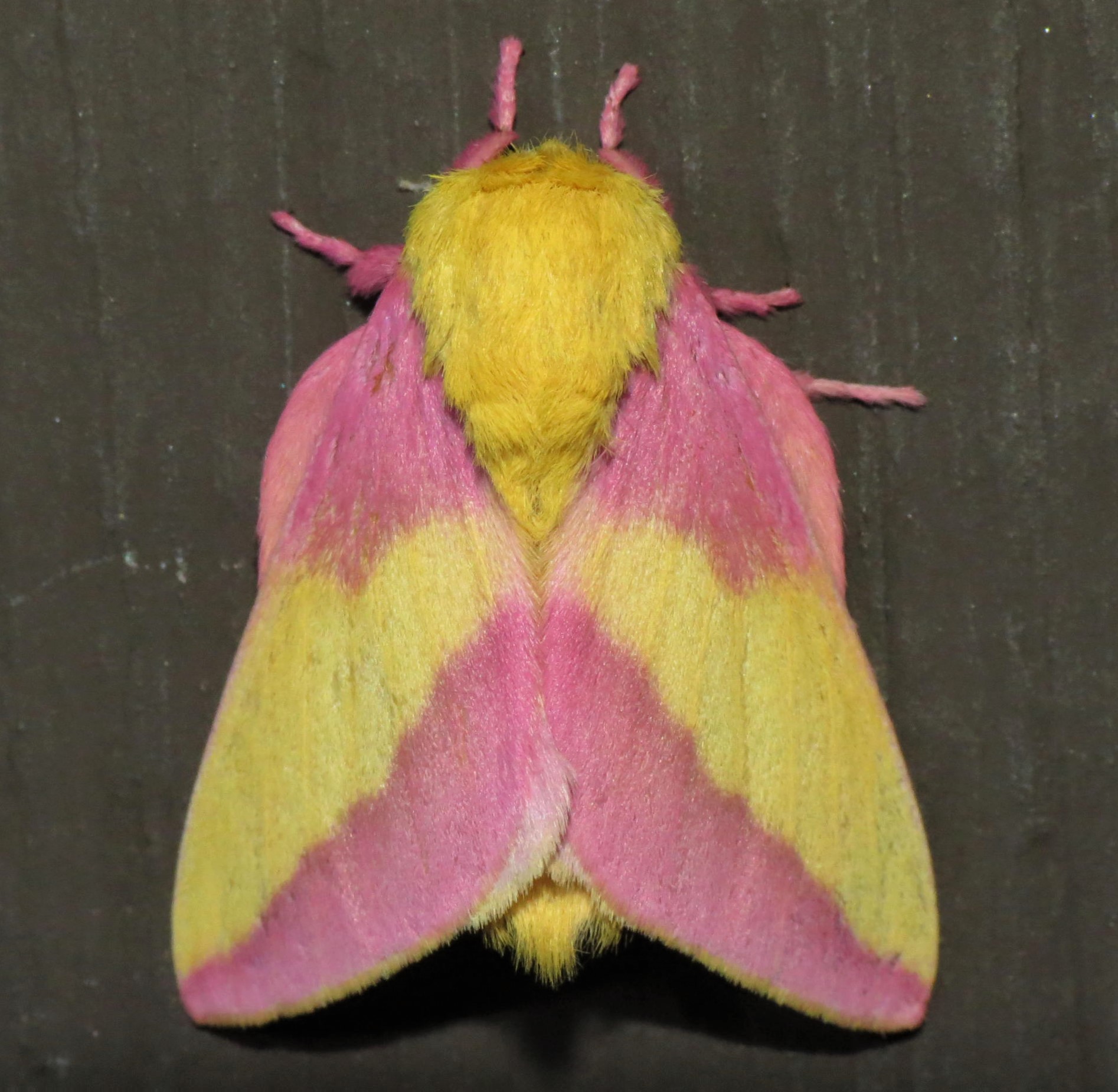Page 1 of 1
Anisota virginiensis
Posted: Wed Apr 17, 2024 6:03 pm
by livingplanet3
Just by chance, I came across an Anisota virginiensis yesterday evening -

I can't recall if I've seen this species here before, though I do remember finding Dryocampa rubicunda on a few occasions, years ago -

I've always been fascinated by Ceratocampinae. There are many small species that are much lesser known than those in familiar genera such as Citheronia and Eacles. For example - Adelowalkeria tristygma (Brazil)

-

Re: Anisota virginiensis
Posted: Wed Apr 17, 2024 9:12 pm
by evra
Ever see the males in the daytime? They are pretty cool with transparent forewings.
With A. oslari I had never seen a male until I put out a virgin female and within 30 seconds, I had about a dozen males swarming me at Pena Blanca Canyon a couple of years ago. It's interesting that something can be so common and you never see it.
Re: Anisota virginiensis
Posted: Wed Apr 17, 2024 11:51 pm
by 58chevy
A. virginiensis & D. rubicunda (along with A. stigma) are common in the pineywoods north of Houston. I captured a couple of males sitting on a wall back in March. Yes, the transparent forewings are very cool. I once saw about a dozen of them hovering in place about a foot off the ground. Impressive sight. Also, I've heard that a revision of the Anisota genus is in progress (Peigler), so some new species might be popping out. Not sure when.
Re: Anisota virginiensis
Posted: Fri Apr 19, 2024 2:44 pm
by Jshuey
Dave Wagner and friends just described a new Anisota from the Texas Hill Country that looks a lot like virginiensis. Apparently it is quite rare, until it has huge outbreaks - then apparently quite abundant - especially the larvae. It was in the latest issue of the Journal of the Lepidopterists' Society.
..., or may it was Dryocampa rubicunda? Heck it's a moth - so I barely pay attention!
John
Re: Anisota virginiensis
Posted: Fri Apr 19, 2024 4:49 pm
by 58chevy
It was Dryocampa kendalli. Looks a lot like D. rubicunda.
Re: Anisota virginiensis
Posted: Fri Apr 19, 2024 5:32 pm
by Chuck
Yes, as 58chevy said, it's related to rubicunda. More here too
viewtopic.php?p=8763&hilit=rubicunda#p8763


 -
- 


